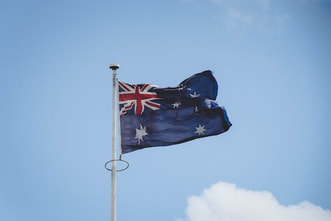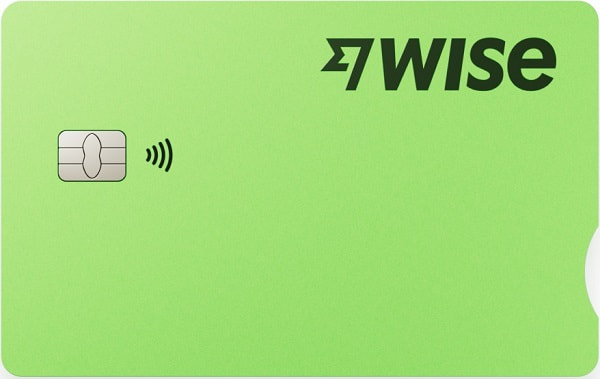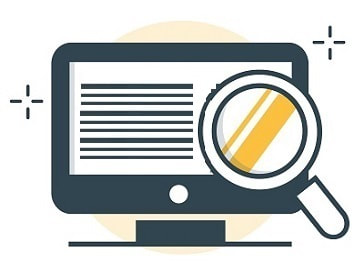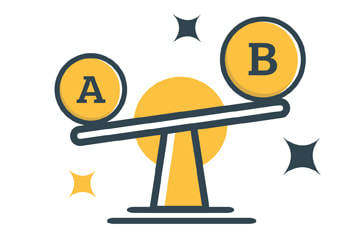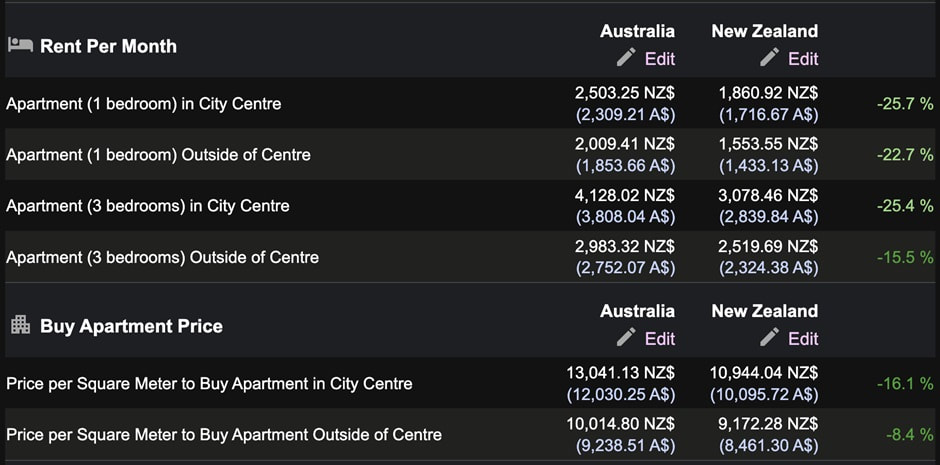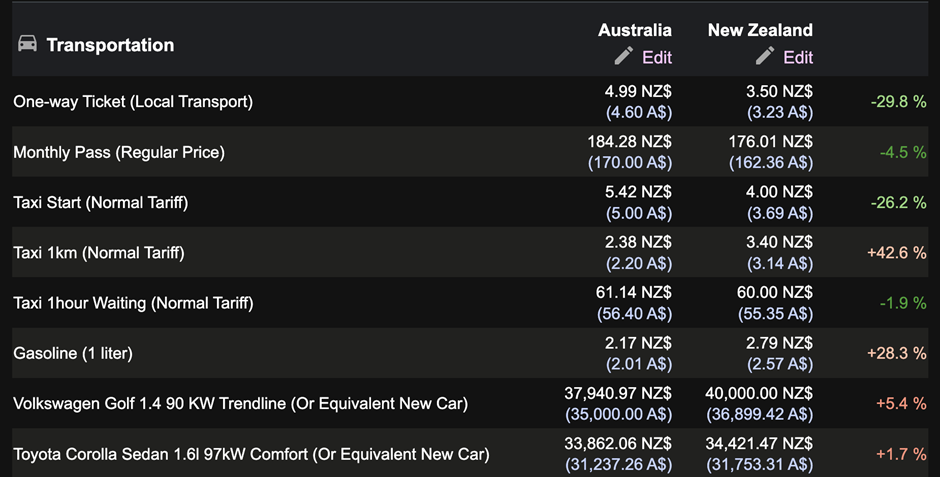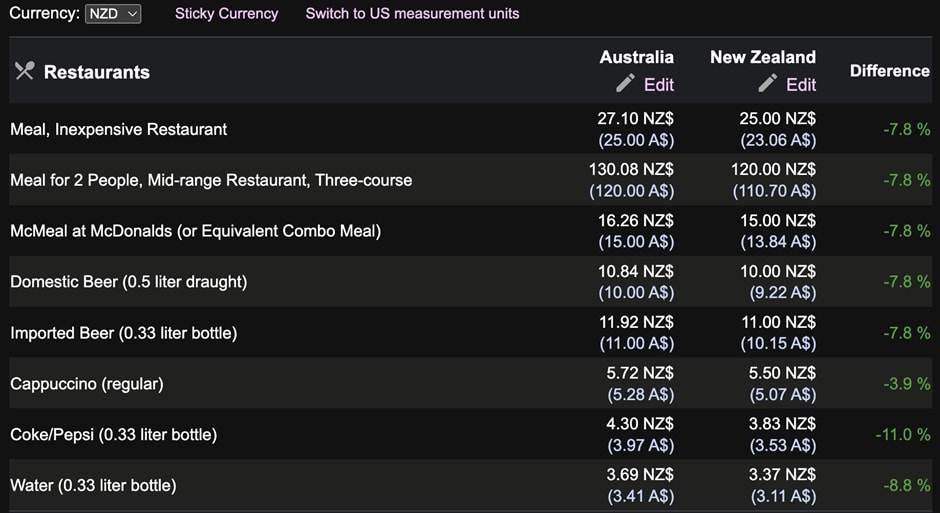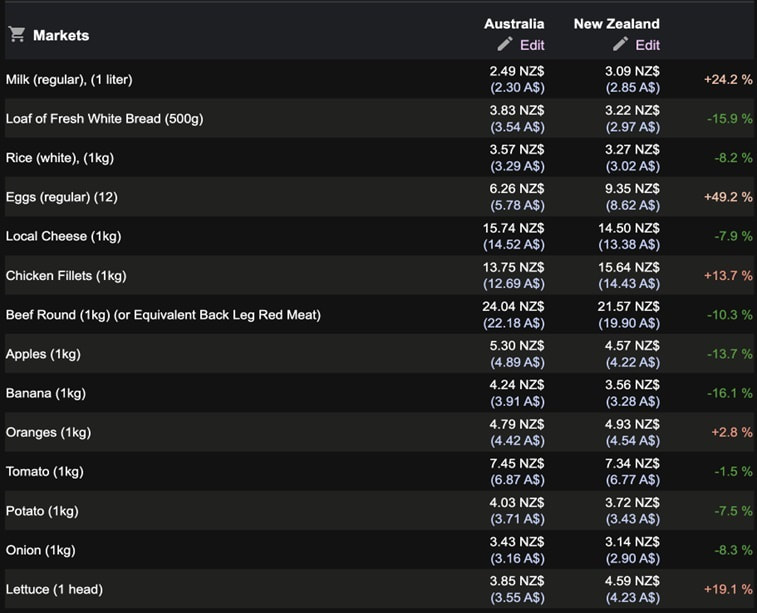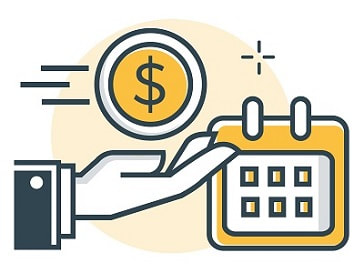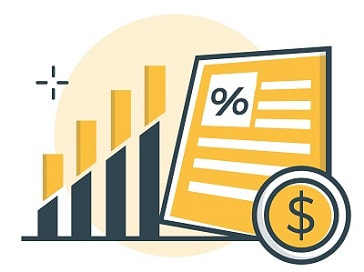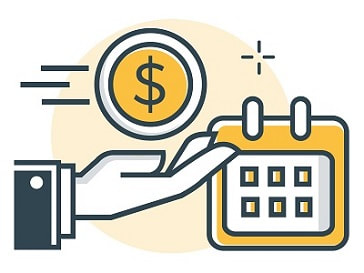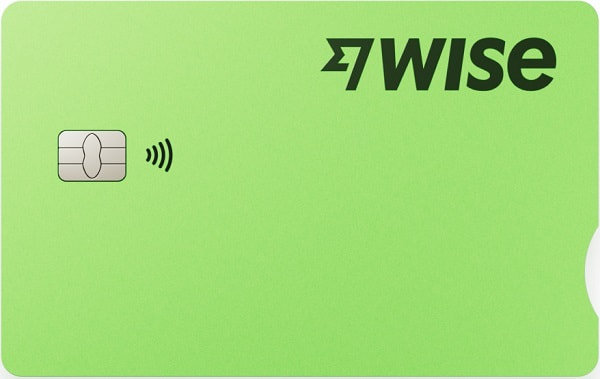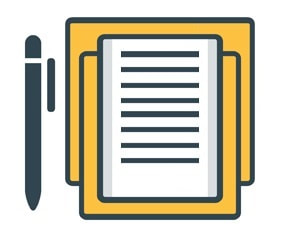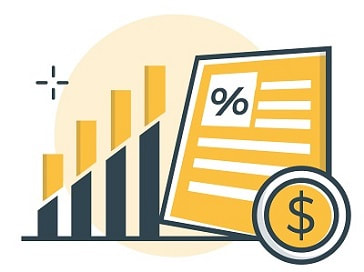Moving to Australia - Must-Know Considerations and Useful Tips
Our guide explains must-know essentials, including visas and citizenship, choosing your Australian city, living costs, setting up a bank account, the logistics of moving, finding a job, retirement contributions and payments, servicing student loans, healthcare and taxes, as well as listing must-know facts and common questions.
Updated 16 June 2024
Introduction
Know This: Why Australia? When does it make the most sense to move to Australia?
New Zealanders move to Australia for all different sorts of reasons. Some of the main reasons include:
More Details:
Introduction
- The Kiwi brain drain is real. With the cost of living, high interest/mortgage rates, and stagnant wage growth putting pressure on many New Zealand households, it's no surprise that more New Zealanders than ever before are considering moving to Australia. Whether it's for the sunnier shores, the promise of adventure and something new or the higher salaries, Australia presents a compelling case for New Zealanders of all ages.
- While some have thrown everything they own in a few suitcases and booked a one-way flight, in reality, there are far more variables to consider that many New Zealanders ultimately scramble to sort out at the last minute. Many have encountered unexpected complications or don't know what to do regarding administrative or cultural things (especially financial things like tax, rent, bonds, medical care and superannuation).
- Our first-of-its-kind guide walks you through everything you need to know so you can minimise confusion and wasted time if and when you decide to make the move.
- Suggested reading: Stuff.co.nz published a comprehensive review in June 2024, interviewing New Zealanders living in Australia about their experiences. The article also features MoneyHub.
Know This: Why Australia? When does it make the most sense to move to Australia?
New Zealanders move to Australia for all different sorts of reasons. Some of the main reasons include:
- More Job opportunities (and higher pay).
- A change of scenery (maybe you’ve lived in New Zealand your entire life).
- New experiences (such as surfing the Gold Coast or working in the hustle of Sydney CBD).
More Details:
MoneyHub Founder Christopher Walsh shares his views on moving to Australia:
|
"I've encountered numerous stories of New Zealanders who've moved to Australia, and the consensus is largely positive. Sure, there are moments when they miss out on family events back in New Zealand – the birthdays, the impromptu family gatherings – but the opportunities and advantages they find in Australia seem to make up for these missed moments.
One of the most apparent benefits of living in Australia is the financial aspect. Across the board, salaries in Australia are higher, regardless of the profession. This can substantially impact your lifestyle and savings. Career-wise, Australia is a land of abundant opportunities. It's not just about the number of jobs but the quality of these roles – the career development opportunities, the professional growth prospects, and the industries that might not be as robust or present in New Zealand. Regarding housing, Australia offers a more accessible market for buying a home. This is a major draw, especially given the New Zealand housing market mess. Another aspect that stands out is the superannuation system in Australia. Unlike KiwiSaver, it's compulsory and offers a more structured approach to retirement savings, without the flexibility of withdrawals for housing or hardships that arguably hold New Zealanders back from long-term balanced growth. Australia manages to get many things right where New Zealand struggles. Without going into specifics, Australia's systems and processes seem more effective and well-implemented. This doesn't mean New Zealand doesn't have its strengths, but in certain areas, especially economically and professionally, Australia has a noticeable edge". |
MoneyHub Founder
Christopher Walsh |
15 Must-Know Considerations for Any New Zealander Considering Moving to Australia:
There's a lot to cover when it comes to moving to Australia. Because of the significant breadth and depth of the topics associated with moving abroad to Australia as a New Zealander, we've segmented each section into its distinct topic:
Our guide also covers:
- Visas and Citizenship
- Choosing Which Australian City You Want to Live In
- Comparing Living Costs
- Banking, Finance and Foreign Exchange Fees
- Logistics of Moving to Australia (Moving, Administration, Rent, Set-up)
- Finding a Job
- Retirement Contributions (Aus Super vs KiwiSaver)
- Retirement Payments (Age Pension vs NZ Super)
- Student Loans
- Healthcare
- Taxes
- Moving Pets to Australia
- Rental Costs
- Cost of Car Ownership
- Childcare Costs
Our guide also covers:
- Must-Know Facts about Moving to Australia
- General and Tax and Overseas Income-Specific Frequently Asked Questions For New Zealanders Moving to Australia
Our Top-Rated 'Moving to Australia' Money Solution - The Wise Debit Card
|
Visa Requirements and Australian Citizenship for New ZealandersIf you ARE a New Zealand Citizen:
What's the difference between being a New Zealander on SCV 444 and an Australian citizen?
If you’re NOT a New Zealand Citizen:
Know This: Australia's immigration system caters to skilled professionals, highly specialised workers, and business investors. Verify the visa you require on the Australian Department of Home Affairs website and, if needed, seek an immigration expert's advice for the application process. The Australian Government has set up a quiz that helps people understand what visa is the best option for them (out of the 43 different visas they offer). Special Category Visa Exclusions For most people, SCVs are automatic, and nothing will need to be done explicitly to apply for or extend the visa. However, there are exclusions to this SCV programme - for example, where criminal convictions are concerned, whether there are issues with passports or whether your spouse/partner isn't a New Zealand citizen. The New Zealand Embassy with the Australian High Commission has a comprehensive FAQ guide to answering these queries. New Zealand Citizens who want Australian Citizenship - Must Know Information:A new direct pathway to Australian citizenship, effective 1 July 2023, has been introduced for eligible New Zealand citizens residing in Australia for four years.
Eligibility for Australian Citizenship for New Zealand Citizens
The legislation will benefit New Zealanders holding temporary, special category visas (SCV) who have been Australian residents for four years and who meet the standard citizenship criteria – this includes:
No income requirement or health assessment is stipulated for this process. Frequently Asked Questions related to Visas and Citizenship:Is a visa required for New Zealanders to live and work in Australia?
New Zealand citizens typically don't require a visa application to reside and work in Australia. Upon arrival with a New Zealand passport, a Special Category Visa (SCV) is electronically allocated, allowing indefinite stay and employment. However, circumstances like a criminal record or health issues, specifically tuberculosis, may affect SCV eligibility. For comprehensive visa eligibility details, refer to the Australian Home Affairs website. Can I have Dual Citizenship as an Australian and New Zealand Citizen? Yes, New Zealanders can retain their passport upon Australian citizenship, upholding dual nationality. More Details: |
Which Australian city is best for me?Just like each New Zealand city offers something different, Australian cities will also offer their unique flair. However, the three main things to consider when deciding which city is right for you include:
1) Job Offers and Opportunities New Zealanders often move to the city where they can find the easiest job. If you work in a corporate or white-collar environment (accounting, marketing, sales or tech), working in larger urban cities like Sydney or Melbourne might make more sense, given the abundance of firms (and jobs). If you're working in the tradie profession or other "blue collar" type roles (such as mining or construction), places like Perth and Brisbane have many companies that are looking for FIFO (Fly In, Fly Out) or heavily physical/seasonal roles. 2) Lifestyle Each city will have its unique flair and characteristics that differentiate it from others. For example, Sydney is known for its hustle and great beaches (e.g. Bondi or Coogee). Melbourne is known for its quirky cafe scene and great coffee culture. Brisbane is known for its hot, stable, warm weather and great beaches (particularly in the Gold Coast and Noosa). Whether you like beach, city, or rural life, each city offers its unique lifestyle for New Zealanders. 3) Cost of Living Similar to New Zealand, the cost of living will vary drastically depending on your city. Just like Auckland and Wellington are the most expensive New Zealand cities to rent and live in (even compared to the rest of the world), Sydney and Melbourne will be the most expensive cities by far in Australia. Generally speaking (on the whole, when looking at Australia versus New Zealand), the cost of living in Australia is marginally more expensive than New Zealand (based on the recent inflation data per NZHerald reporting). However, it will vary drastically depending on the city you're comparing and whether inflation includes additional things above and beyond food, such as power, utilities and transportation. What’s it like living in Australia? Based on anecdotes from New Zealanders who’ve recently moved over to Australia (largely generated from the Reddit Personal Finance NZ page), here are a few of the top insights into Australian life:
Table 1 - Which city should I Move to in Australia? What city is the best?
Notes and Disclosures (Data Sources: Numbeo, Google, MoneyHub Estimates)
|
Comparison of living costs: Australia versus New ZealandFor this entire section, our source is Numbeo Australia Versus New Zealand (November 2023).
Headline Cost Comparisons:
While there’s a widely held belief that the financials of moving to Australia are far better than New Zealand, the proof is in the pudding:
How do salaries compare between Australia and New Zealand?Comparing salaries, New Zealand salaries are roughly 10.5% lower than Australian salaries.
How do rent/housing costs compare between Australia and New Zealand?
How do transportation costs compare between Australia and New Zealand?Transportation costs in both countries include public transport, private vehicles, and taxis. In Australia, a monthly public transport pass costs around AUD 140, while in New Zealand, the cost is around NZD 180. Petrol prices are also slightly higher in New Zealand, at approximately NZD 2.80 per litre compared to AUD 2.00 per litre in Australia.
How do restaurant costs compare between Australia and New Zealand?Across the board, Australian restaurant prices are almost always more expensive than New Zealand restaurant prices (ranging from around 4% to 12% more expensive depending on what you’re buying).
How do supermarket costs compare between Australia and New Zealand?Our summary shows differences. Specifically:
|
Banking and Foreign Currency ExchangeHow can I open an Australian Bank Account from New Zealand?
Most New Zealanders will have three main options regarding banking for those moving from New Zealand to Australia:
Short-term Solution: Use NZ-based banks or fintech platforms:
However, if you plan on staying there longer and want to establish yourself, get a consistent salary and need more credible bank accounts (for immigration, utilities, etc.). Trying to set up a dedicated account from an Australian bank might make sense. The Process of Setting Up a Bank Account with a Leading Australian Bank
Requirement of 100 Identification Points Australia has a system where various ID forms are assigned point values. To open an account, you must provide IDs totalling 100 points, with a passport, for instance, valued at 80 points. Additional forms of ID that carry points include:
Consistency in Names on Driver License and Passport Ensure that the name on your New Zealand driver's licence matches exactly with your passport before you leave New Zealand. If there is any discrepancy, it could lead to your ID being rejected. Foreign Exchange (FX) - why we suggest considering Wise:Moving funds from New Zealand to Australia is a significant financial step. Choosing a reliable foreign exchange service is crucial to ensure favourable exchange rates and minimal fees. Additionally, many “main street” banks charge an arm and a leg for foreign exchange between Australia and New Zealand - it’s important to be wary of predatory FX conversion rates.
Our research and findings for NZD/AUD Foreign Currency Conversion
Must-Know Facts about Foreign Exchange: 1. Compare and contrast your rates: Be sure to check with multiple services (e.g. Wise versus Revolut) especially when converting large sums of money. Be wary of international transfer fees with banks due to unfavourable exchange rates. Once you have an Australian account, consider using services like Wise for money transfers, which offer transparent fees and real-time exchange rates. 2. Compare and contrast the main Australian banks: If you’ve got the time, try to identify which Australian banks make the most sense for your situation (and apply before you leave). A few examples of Migrant Banking Applications you can fill out while in New Zealand (before you’ve arrived in Australia) include:
Note: Not all of the above banks can "fast track" your application by getting you to open a bank account BEFORE arriving in Australia. For example, Westpac's migrant banking process typically occurs once you've arrived in Australia. In contrast, CBA's migrant banking process allows New Zealanders to apply for a bank account up to 14 days before arriving in Australia (which means you can apply and save time/administration before you land). Be sure to check with the specific bank's procedures to determine whether it's possible to do the application process upfront. Common questions:1) I plan on moving to Australia permanently, and I have a lot of NZ-denominated cash. What's the best way to convert large amounts of currency?
Ultimately, it'll come down to the best RATE you get for converting NZD to AUD. It’s almost always cheaper to convert via neobanks like Wise or Revolut than the main street banks (ASB, ANZ, Westpac, etc.) as they usually add foreign currency conversion fees and sub-optimal foreign exchange (FX) rates compared to Neobanks. Just having an account with a New Zealand bank that operates in Australia doesn’t make the bank process any easier. While some NZ banks have the same name and are affiliated/owned by their Australian counterpart, the banks do not make it easy. For regulation purposes, they operate separately and will likely get you to go through the application process like any other applicant. In other words, it’ll take just as long to apply and get approved to open a bank account for the Australian counterpart of your main bank (e.g. opening a Westpac Australia account as a current Westpac New Zealand customer) than it is to apply and get approved for a completely different bank (e.g. Applying to Commonwealth Bank of Australia / CBA as a Westpac New Zealand customer). 2) What are my short-term options for spending in Australia?
More Details:
|
The Logistics of Moving to AustraliaNavigating a new country straight from the airport can be daunting, particularly for families. New Zealanders often ask questions about the best approach to accommodation in Australia, especially when unsure how long you're staying. Because most New Zealanders move to Australia for all types of durations and reasons (anywhere from a few weeks to months or years), the advice around accommodation varies.
How similar is the Australian rental/property market to New Zealand?
What are the main logistical things I need to consider and sort out? Once you’ve decided which city you want to move to and where you want to live, the three big “administrative things” to try and square away for most New Zealanders are:
1) What are the different types of Accommodation options for New Zealanders moving to Australia?
2) Setting up Utilities in Australia When you first sign a lease or move into a rental in Australia, unless you already have an Australian bank account, you’ll often lack the necessary documentation for direct utility set-up such as for electricity, gas and internet (which almost always requires things like an Australian bank account, permanent address and Tax File Number/TFN). Some of the usual things you’ll need to provide to set up utilities include:
3) What is the process of setting up the internet? Generally:
Who are the most popular Australian Internet providers? Generally, it’s easiest to go with the largest incumbent internet providers. Some of the top brands include Telstra, Optus, Vodafone and TPG. What are the logistics of moving? Uprooting your entire life can feel daunting, but it can help to segment and separate what needs to go and what can stay. Generally, there are four main “buckets” of things that need to be logistically sorted:
Regarding moving your physical stuff, it can help to decide what’s worth taking with you (on the flight or shipping across the ditch), and what stuff can be stored in New Zealand (either in a storage container or kept with family/friends). Should I ship my stuff to Australia or just sell it and buy a new one when I get there? It depends. Some physical stuff (like clothing) might not be as special to you and is easily discarded or given to charity (which you can replace while you’re over there). However, some other more significant items (like photographs or family albums) are probably best taken with you. Additionally, other large items (like cars, whiteware and tools) are probably more of a hassle to ship over and might warrant just selling it in New Zealand and buying another when you reach Australia. Important: Do your research before you leave New Zealand and know the logistical plan of what you need to set up first (in other words, get the order right). Weigh up your options and compare the competition for power, phone and internet providers. For example, a typical plan might look like this:
|
Finding a Job in AustraliaNew Zealanders have a few options when it comes to finding a job in Australia:
What are the legal requirements for working in Australia? New Zealand citizens have the legal right to work for almost any role or company in Australia. However, there are a few caveats:
Where are the best places to find live Australian jobs? There are four best ways to find a job in Australia:
1) Online Job Boards
2) Recruiters
3) Apply directly through a company’s website
4) Referrals or networking (non-advertised jobs)
Must-Know Facts about Finding a Job in Australia:
|
Retirement Contributions (KiwiSaver vs Aus Super)Australian Superannuation is a retirement savings plan available to Australian citizens, permanent residents, and New Zealand citizens.
What are the main similarities between Australian Superannuation and Kiwisaver?
What are the main differences between Australia Superannuation and KiwiSaver? Australia's superannuation system and New Zealand's KiwiSaver programme are both retirement savings schemes, but they have some distinct differences:
Must Know Facts about Retirement Contributions
|
Retirement Payments (Australian Age Pension versus NZ Super)The Australian Age Pension and the New Zealand Superannuation (NZ Super Pension) are government-funded retirement income schemes in their respective countries, each with its own rules and eligibility criteria.
There are three main pathways for Superannuation for New Zealanders:
New Zealanders' Eligibility for Australian Age Pension If you're a New Zealanderwho's lived in New Zealand for most of their life but is thinking of moving to Australia for retirement, the Social Security Agreement between Australia and New Zealand will likely cover you and assume you get certain entitlements and payments (assuming you meet the eligibility criteria). Check Work and Income New Zealand's landing page on the Social Security Benefits for New Zealanders in Australia for more details. New Zealanders living in Australia can be eligible for the Australian Age Pension, but there are specific criteria they must meet:
What are the pros and cons of retiring in Australia versus New Zealand? Both Australia and New Zealand are great places to retire. However, some specific nuances may impact the types of payments you'll receive in retirement. The main differences between the Age Pension in Australia and the New Zealand Superannuation (NZ Super) are primarily in their eligibility criteria, means testing, and payment structure: 1) Means Testing versus No Means Testing:
2) Age and Residency Eligibility Criteria:
3) Payment Rates
|
Student LoansMany New Zealanders who jump to Australia may have studied at trade school or university, incurring student loan debt through Studylink. One of the unique benefits of taking out student loans in New Zealand is that they're "interest-free" (e.g. the interest portion is written off) for as long as you stay in New Zealand.
Managing New Zealand Studylink Student Loan Payments from Australia If New Zealanders move anywhere overseas for six months or longer, their New Zealand student loan accrues interest. This means you will incur interest (historically ranging from 2.8% to 5.3% p.a. in the last few years) after a certain period (usually five out of six months). The IRD has provided full guidance on this issue. A few things to note:
Studying in Australia as a New ZealanderStudying in Australia is one of the top destinations for many worldwide. Many Australian universities (such as The University of Sydney, The University of New South Wales and The University of Melbourne) hold highly prestigious rankings compared to other universities globally (and compared to universities in New Zealand). However, these universities are notoriously more expensive, and it can be hard to find funds to support attending them as New Zealanders.
There are usually two paths to funding a university: self-funding and student loans. 1) Getting a Student Loan from Australia: Typically, New Zealanders holding an SCV are ineligible for Australian student loans, known as HELP loans, unless they meet specific criteria:
While it's highly likely many New Zealanders won't be eligible for Australian student loans (given they likely won't have lived in Australia for eight years out of the last 10), there is a silver lining - domestic university student fees are typically significantly cheaper than international university student fees. As per the Australian High Commission, New Zealanders are considered domestic students when applying to Australian universities, so they won't have to pay exorbitant international fees when attending Australian universities. |
HealthcareAustralia and New Zealand have public healthcare systems providing free or heavily subsidised healthcare services to citizens and permanent residents.
How does Health Insurance work in Australia? Healthcare in Australia operates similarly to New Zealand, with two main healthcare pathways: public (Te Whatu Ora and ACC) and private (such as buying a health insurance plan with someone like Southern Cross). Australia also has a public healthcare system (Medicare), which offers substantial coverage alongside the private health insurance system and can provide broader options and more extensive protection. What does Medicare entitle me to? Individuals have access to subsidised services from healthcare providers, including medical professionals, qualified midwives, nurse practitioners, and allied health experts, all holding Medicare provider numbers. Additionally, they can receive free public hospital care. Are New Zealanders eligible for Medicare? Generally, there are two situations where you might need healthcare support - on short-term trips or as a longer-term option (e.g. you've moved to Australia). 1) Short-Term Healthcare Solution for New Zealanders: Reciprocal Healthcare Agreement: For short-term stays (where you haven't enrolled in
2) Long-Term Healthcare Solution for New Zealanders: Medicare.
Do I need to buy private health insurance?
|
Taxes in AustraliaIn Australia, the tax system operates on a progressive scale, where the tax rate increases as the individual's income increases. This is similar to New Zealand's tiered tax system. Both countries tax residents on their worldwide income. In contrast, non-residents are taxed only on their income from sources within each country.
Resident tax rates 2023–24
Exhibit: Australian Resident Tax Rates 2023 - 2024 (Source: Australian Tax Authority) - The above rates do not include the Medicare levy of 2%.
Australian Taxation Framework
Taxation Rates Both countries have a progressive tax system, meaning that the more you earn, the higher the percentage of tax you pay. In Australia, the tax rates range from 19% to 45%, while in New Zealand, they range from 10.5% to 39%. Tax Obligations Like New Zealand's IRD, the Australian Taxation Office (ATO) handles Australia's tax matters. If employed in Australia, you're subject to income tax and need a Tax File Number (TFN). You might be taxed at the highest marginal rate without providing this to your employer. Obtaining a Tax File Number (TFN):
Buying Property in Australia as a New Zealander
Other things to note related to property:
|
Moving Pets to AustraliaIf you're determined to move over with a pet, you'll need to start planning well in advance, as pet relocation can be costly.
Per the Australian government and effective from 1 March 2023:
Generally, the health certificate must certify that:
The New Zealand government outlines what you need to know here. Understanding the costs
|
Rental CostsThe housing and rental market in major Australian cities like Sydney, Melbourne, Adelaide, and Brisbane has experienced significant changes in recent years, particularly in the context of the COVID-19 pandemic and its aftermath. There are two long-standing issues, as outlined by the Australian Reserve Bank in 2023:
Comparing Rental Markets in Major Cities, as outlined in this January 2024 report:
Challenges and Tips for Finding HousingFinding housing in these competitive markets can be challenging. We suggest the following:
Know This: The rental markets in these major Australian cities remain generally tight, with ongoing demand and limited supply. This situation has led to relentless rent increases, making it increasingly challenging for renters to find suitable accommodation within their budget. Government initiatives to increase rental supply are unlikely to impact the market significantly in the short to medium term. |
Cost of Car OwnershipThe cost of car ownership differs in Australia from that in New Zealand. Here's what you need to know:
|
Childcare CostsChildcare in Australia, especially in metropolitan areas like Sydney and Melbourne, represents a significant expense for many families.
Overview of Childcare Expenses:
Government Subsidy Programs
|
Our Top-Rated 'Moving to Australia' Money Solution - The Wise Debit Card
|
Must-Know Facts about Moving to Australia
- As of April 2023, a direct pathway for New Zealanders to obtain Australian citizenship has been created: The newly established direct route to Australian citizenship has been a significant drawcard for many New Zealanders settling in Australia.
- Moving can be a shock to your lifestyle, so take your time: While it can seem daunting to try and do everything right this second, know that it's a gradual process, and you can take time to action on some of these things.
- The biggest difference by far will be the shift in lifestyle: Anecdotally, the culture is somewhat similar. Most Australians are very friendly and emulate some of the cultural characteristics similar to those of New Zealanders. However, the biggest difference will be the size of the country and cities - there are just far more people (especially in major city centres like Sydney and Melbourne, which have 5x the population of our largest city - Auckland).
- New Zealand residents contemplating a move to Australia need to weigh the variances in lifestyle and potential impacts on their lives. For those who like the quieter life, potentially picking a less populated or more "chill" place that aligns better with their interests can help to reduce the "shock factor" of moving countries.
- Don’t underestimate how much it costs to uproot somewhere: While it’s easy to find cheap flights to Australia for <$300 one way, know that there are far more costs than you might initially expect. From paying the bond on rentals to buying new whiteware to tax obligations and moving costs, you might end up paying $10,000+ in the first few months of moving from New Zealand to Australia.
General Frequently Asked Questions For New Zealanders Moving to Australia
Can I access Unemployment or Sickness Benefits in Australia?
If you’re on SCV 444, no. New Zealanders must acquire Australian permanent residency and endure a two-year waiting period to be eligible for specific social security benefits, including unemployment support
What’s the cost of relocating belongings (clothes, tech, stuff)?
The expense varies based on the volume and nature of items. Generally, it’s recommended to set aside a few thousand dollars to factor in any storage costs, freight/shipping costs and baggage costs for bringing stuff over on the flight, and any replacement cost for things when you get to Australia.
Should I convert NZD to AUD and carry physical cash?
Australia is generally pay-wave friendly and is heading towards a cash-free society. While all vendors still accept cash, carrying large amounts of cash isn’t recommended (due to theft and potential unfavourable currency conversion rates/fees).
I’ve just become an Australian citizen. Do I need to renounce my New Zealand passport and citizenship?
No, you can keep your New Zealand Passport as a joint New Zealand and Australian Citizen. Dual citizenship is possible, allowing you to keep your New Zealand passport after acquiring Australian citizenship.
How much Australian cash should I travel with?
Feel free to carry some, but it’s unlikely you’ll need much. Australia is largely cash-free and aims to become "functionally cashless” by 2025. Many POS terminals take paywave - it's common for people to carry a phone and Apple watch with them when going out.
Will my qualifications be recognised in Australia?
It depends on the profession. Some qualifications are mutually recognised, while others may require additional accreditation.
Can I access public healthcare in Australia?
Yes, under the Medicare system, but you must register first.
Can I vote in Australia as a New Zealand citizen?
No, unless you were enrolled to vote in Australia as a British subject before 1984.
How does the tax year compare to New Zealand's?
The Australian tax year runs from July 1 to June 30, which is different from New Zealand's April 1 to March 31.
Do I need a car in Australia?
Yes, you’ll likely need a car for most cities in Australia (unless you live in the dense urban CBD areas of cities like Sydney or Melbourne). Australians drive on the same side of the road as New Zealand and you’ll be able to use your full NZ driver’s licence for up to three months, then you’ll need to transfer your licence to an Australian licence to drive legally.
Upon arrival in Australia, many utilise the country's excellent public transport while searching for a car. Uber services are also accessible in Australia. Car rental options are readily available, including pickups from the airport, facilitating the exploration of one’s new city.
Upon arrival in Australia, many utilise the country's excellent public transport while searching for a car. Uber services are also accessible in Australia. Car rental options are readily available, including pickups from the airport, facilitating the exploration of one’s new city.
Can I Relocate to Australia With a Criminal Record?
New Zealanders with criminal records must secure a detailed account of their history from the Department of Home Affairs before entering Australia.
What's the process for New Zealanders wanting to have a child in Australia?
Maternity care, including midwife and delivery services, is generally covered by Medicare in public hospitals and available to New Zealanders holding an SCV. Government payments may also be accessible under certain conditions.
What do I need to know about Australia Preschools and Kindergartens?
For those migrating to Australia with young children, it's important to note that educational systems vary by state. Various early education and childcare options exist, such as preschools, kindergartens, childcare centres, and early learning centres for children under six.
Australian government funding supports early childhood education in all states and territories, focusing on the year preceding formal schooling (ages 4-6). Fees may apply, especially for children under four.
Australian government funding supports early childhood education in all states and territories, focusing on the year preceding formal schooling (ages 4-6). Fees may apply, especially for children under four.
Tax and Overseas Income-Specific Frequently Asked Questions For New Zealanders Moving to Australia
What are the tax responsibilities for NZ property owners earning rental income while residing in Australia?
If you own property in New Zealand and earn rental income while living in Australia, you must declare this income in both countries. This income is subject to taxation in Australia as part of your global income. However, any tax paid in New Zealand may, in most cases, be credited against your Australian tax liability to avoid double taxation.
Generally, you must declare your rental income in your NZ tax return. In Australia, include this income in your Australian tax return. It's crucial to understand the provisions of the Australia-New Zealand Double Tax Agreement to ensure correct declaration and take advantage of any tax credits or exemptions.
Generally, you must declare your rental income in your NZ tax return. In Australia, include this income in your Australian tax return. It's crucial to understand the provisions of the Australia-New Zealand Double Tax Agreement to ensure correct declaration and take advantage of any tax credits or exemptions.
How do I manage other NZ investment income, like dividends and interest, while living in Australia?
Similar to rental income, dividends and interest earned from NZ investments must be declared in Australia and New Zealand. You'll need to adhere to the tax laws in each country and report this income accurately in your tax returns. Be aware of the different tax rates and potential credits applicable to such income.
What are New Zealand investment income tax implications for Australian residents?
As an Australian resident, your global income, including NZ investment income (dividends, interest), is subject to Australian tax. However, the tax paid in New Zealand may reduce your tax liability in Australia. Understanding the specific tax implications based on the type of investment is important.
Comprehending NZ and Australian tax laws is crucial to ensure compliance and optimise your tax position. Different rules may apply for various types of income and investments, and understanding these can help in effective tax planning and avoiding penalties.
Comprehending NZ and Australian tax laws is crucial to ensure compliance and optimise your tax position. Different rules may apply for various types of income and investments, and understanding these can help in effective tax planning and avoiding penalties.
Can an accountant help with tax planning for cross-border income?
Yes, an accountant experienced in cross-border taxation can assist in tax planning, ensuring you benefit from any available tax credits or exemptions and comply with the tax requirements in both countries. They can also help in strategizing your investments to optimise tax efficiency. For detailed advice and to address your unique situation, it's best to consult with an ccountant or tax advisor who is knowledgeable about the tax laws in both New Zealand and Australia.
Related guides and resources:
- How to Open an Australian Bank Account from New Zealand: This guide provides information on how New Zealanders can open an Australian bank account, comparing different banking options, including traditional banks and alternatives like Wise. It details the processes, fees, and requirements for each option.
- Australia Travel Money: Focused on financial considerations for New Zealanders travelling to Australia, this guide discusses using cash, debit and credit cards, and travel money cards. It provides tips on managing currency exchange and choosing Australia's most cost-effective and convenient payment methods.
- Working Holiday Visas for Kiwis Aged 30+: Specifically for New Zealanders over 30 looking to work abroad, this guide lists countries offering working holiday visas, including Australia. It covers the eligibility, application details, and essential tips for a successful working holiday experience.

